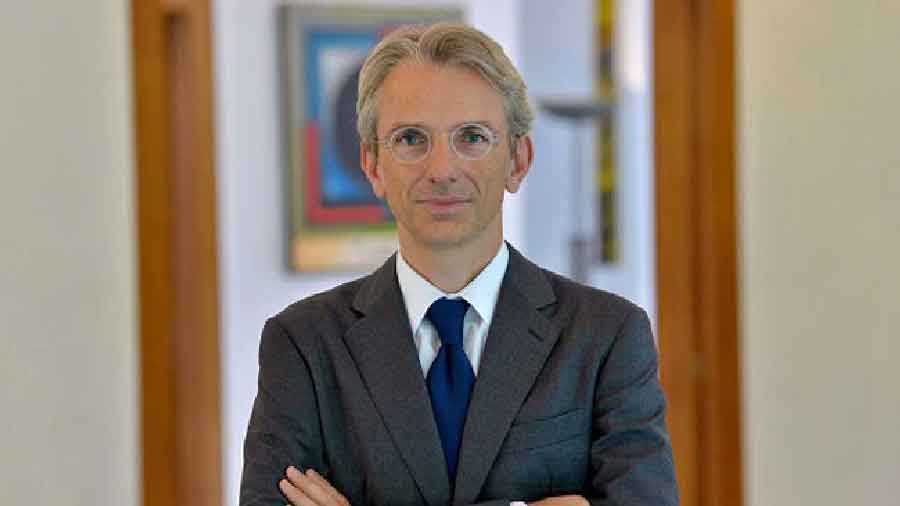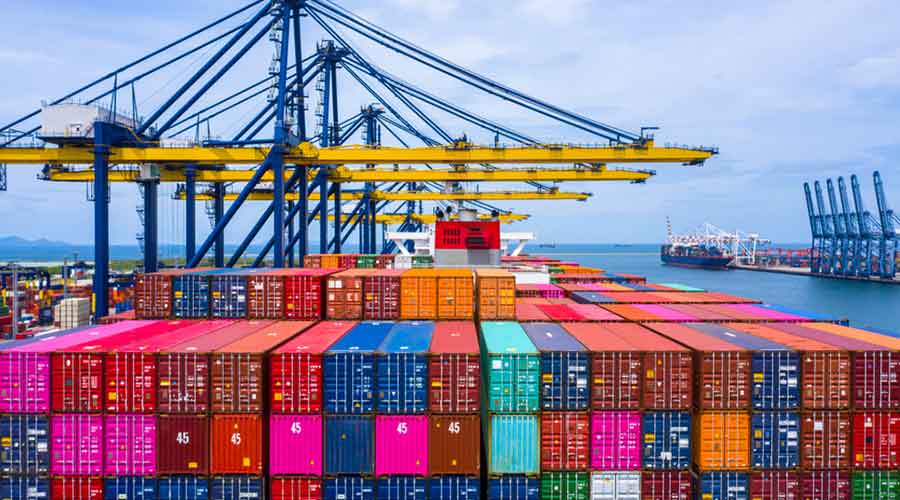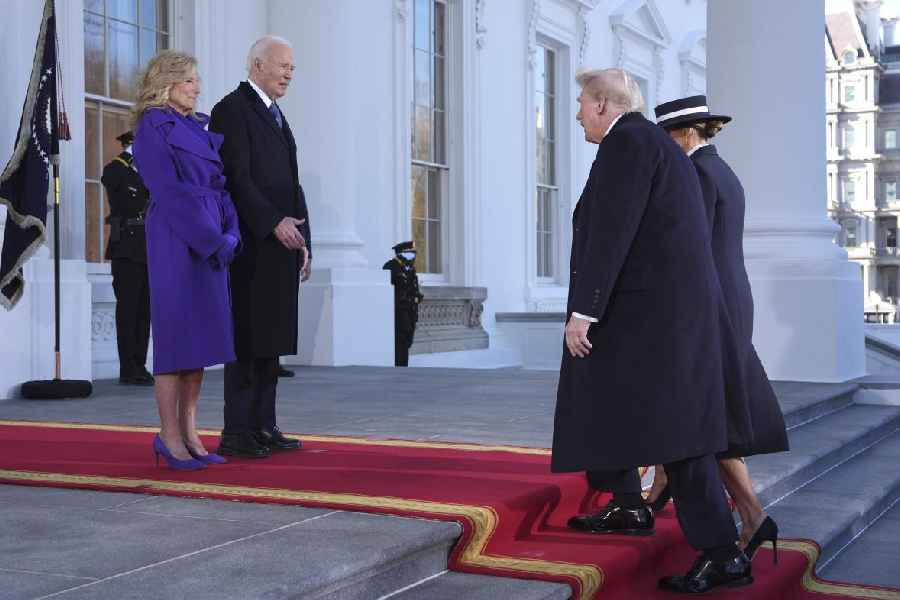India could receive a chunk of the Euro 300 billion fund announced by the European Union (EU) under its Global Gateway scheme aimed at expanding connectivity including in the Indo-Pacific region, French Ambassador Emmanuel Lenain said.
Announced in December last year, the massive global investment plan for connectivity projects is seen as a counter to China's ambitious Belt and Road Initiative.
"It is massive. The total funding for this project is 300 billion Euros. I am confident that the Indo-Pacific and India could receive a chunk of it," Lenain told PTI.
On China's increasing assertiveness in the Indo-Pacific, he said Paris does not want to be "confrontational" but prefers to be "efficient" while highlighting the strategic convergence between India and France for the region.
"There is total convergence. There is no issue with that. France witnessed the same assertivity of China in this region and we are really committed," he told PTI about similarities of views between India and France on the approach towards the Indo-Pacific.
There have been rising global concerns over China's increasing military muscle-flexing in the Indo-Pacific and India is among the leading powers that have been pushing for ensuring rule of law and prosperity for all stakeholders in the region.
Delving into various challenges facing the Indo-Pacific, Lenain also said that there is a need to provide an "alternative to the Chinese model".
"We feel that we are India's neighbour: we are a resident power of the Indo-Pacific. We have territories in this region, we have people in the region, almost 2 million French citizens, and we have troops," Lenain said.
"So we are totally committed. We have a strategy that was spelt out in the same year as India did in 2018. We have the same view of what should be done," he said.
The ambassador said France prefers a comprehensive strategy to tackle the challenge.
"We do not want to be confrontational; we want to be efficient. Obviously, there is a security aspect. We work together (with India) on maritime security, we do joint patrolling, we do intelligence sharing," he said.
"But that's not all. We also need to provide an alternative to the Chinese model. The countries (of the region) want to develop and we want to allow them to develop in a sustainable, green and transparent manner.
"'That's what we are doing. We work together on connectivity, health and climate issues. And we want to do even more with India," he said
The French envoy also highlighted the 27-nation European Union's strategy for the Indo-Pacific which was unveiled last year.
"The EU last year adopted an Indo-Pacific strategy. It is massive and impressive. As it is always with the EU you do not see it right away, but you will feel it over the years and it will yield huge results because it is backed by all the power of the EU and all the funds of the EU," Lenain said.
"In this package, there is an initiative called Global Gateway which is an initiative to fund connectivity projects," he said.
In a significant move, India and France last month agreed to set up a framework to roll out development projects following talks between External Affairs Minister S Jaishankar and his counterpart Catherine Colonna.
"During the visit of our foreign minister last month, it was announced that our two countries are launching a joint Fund to promote initiatives in the Indo-Pacific area by companies in line with these goals," Lenain said.
The ambassador described it as a "very important" move even as he talked about the French policy for the region that was unveiled in 2018.
"We have a strategy that was spelt out in the same year as India did in 2018. We have the same view of what should be done. It means we want a comprehensive strategy to tackle the challenge. We do not want to be confrontational; we want to be efficient," he underscored.












